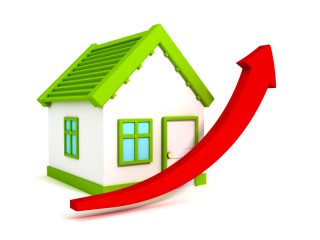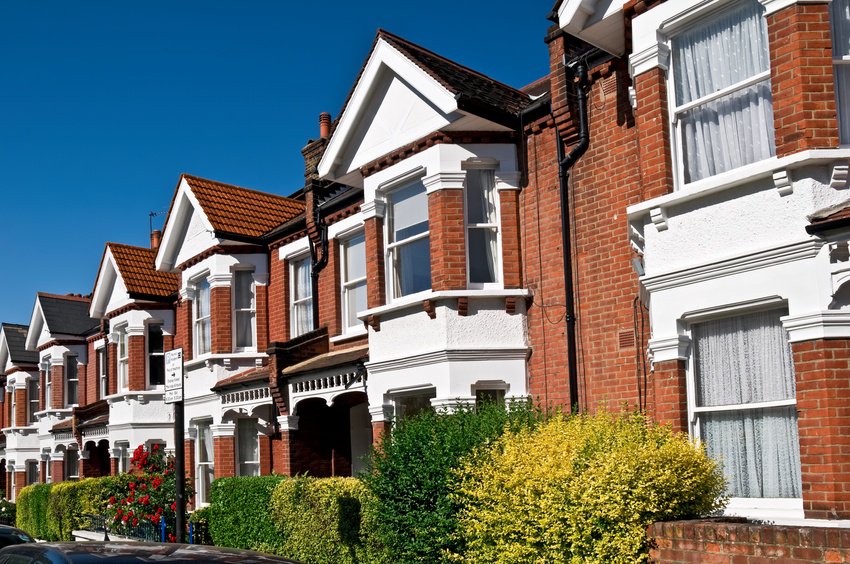The average house price in the UK dropped by 0.2% between
April and May this year, according to the latest House Price Index from
Nationwide.
On an annual basis, house price growth dropped from an average of 0.9% in April, to just 0.6% in May. This slight decrease took the average house price to £214,946 last month.
Robert Gardner, the Chief Economist at Nationwide, explains the figures: “Annual house price growth remained below 1% for the sixth month in a row in May, at 0.6%.
“Survey data suggests
that new buyer enquiries and consumer confidence have remained subdued in
recent months. Nevertheless, indicators of housing market activity, such as the
number of property transactions and the number of mortgages approved for house
purchase, have remained broadly stable.
“Housing market
trends are likely to continue to mirror developments in the broader economy.
While healthy labour market conditions and low borrowing costs will provide
underlying support, uncertainty is likely to continue to act as a drag on
sentiment and activity, with price growth and transaction levels remaining
close to current levels over the coming months.”
He looks into
conditions for prospective first time buyers: “First time buyer numbers have
continued their steady recovery in recent quarters, reaching 359,000 in the 12
months to March, just 10% below 2006 peaks. The trend is partly due to robust
labour market conditions, with employment rising at a healthy rate and earnings
growth slowly gathering momentum.
“Low borrowing costs
have also provided important ongoing support. Even though house prices remain
high relative to average incomes, the cost of servicing the typical mortgage as
a share of take-home pay has remained close to or below long-run averages in
most parts of the country.
“The main exception
is in London, where a period of rapid house price growth in the three years to
2015 means that monthly mortgage payments would also be unaffordable for a
large proportion of the local population.
“Outside of London
and the South East, raising a deposit appears to be the main challenge for most
prospective first time buyers.
“Even in Scotland and
the north, where property appears most affordable, it would still take someone
earning the average wage and saving 15% of their take-home pay each month more
than five years to save a 20% deposit. In Wales and Northern Ireland, it would
take prospective buyers nearly seven years, and almost eight for people living
in the Midlands.
“Reflecting the trend
in overall house prices, the deposit challenge is most daunting in the south of
England, where it would take an average earner a decade or more to amass a 20%
deposit.
“Again, the pressures
are most acute in the capital, where someone earning an average income would
take more than 15 years to save a 20% deposit on the typical London property
(even longer than was the case before the financial crisis, when it would have
taken over ten years).”
But Government
schemes and family support are helping to ease deposit constraints. Gardner
says: “In recent years, a growing proportion of first time buyers have been
drawing on help from friends and family, or an inheritance to help raise a deposit.
“In 2017/18, almost
half of first time buyers had some help raising a deposit, either in the form
of a gift or loan from family or a friend, or through inheritance, up from
around a quarter in the mid-1990s and 35% of buyers in 2015/16.
“The Government’s Help
to Buy equity loan scheme has also been an important source of support for
first time buyers, by easing deposit constraints.
“Those buying with
Help to Buy accounted for 14% of first time buyer transactions in England in
2018, and almost 40% of private new build homes were bought under the scheme
last year, although the proportion varies across the country.
“Help to Buy Wales
accounted for over 40% of private new build completions in the principality in
2018. Meanwhile, Scotland saw c.2,300 sales in 2017/18 through the Affordable
New Build Scheme, approximately 17% of private new build completions, where the
lower proportion largely reflects the narrower scope of the scheme.”
Market trends are
also providing a tailwind, he explains: “The interest rates charged on
mortgages where the borrower puts down a smaller deposit have also declined
relative to those with larger deposits in recent quarters.
“This trend is also
likely to be allowing some borrowers to enter the market sooner, as there is
less of a cost advantage to waiting to accrue a larger deposit.”
Guy Harrington, the CEO of residential and commercial lender Glenhawk, gives his thoughts on the index: “Slowing growth is a trend we will likely see for some considerable time. There are a number of factors dragging on the housing market; not only do we now have a leadership battle in Government, but also the potential of a general election, compounded by Brexit. Despite this unsettling backdrop, a combination of the low interest environment, ongoing Government support, sluggish house price performance and willing lenders presents a great opportunity for buyers.”






